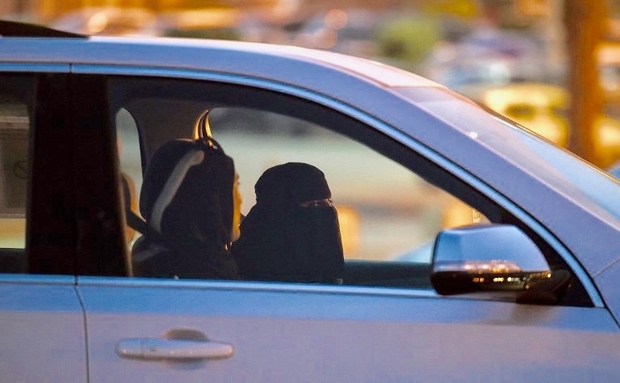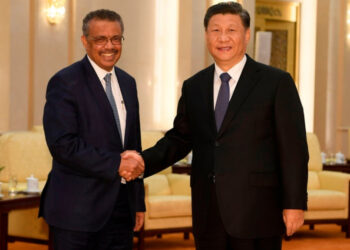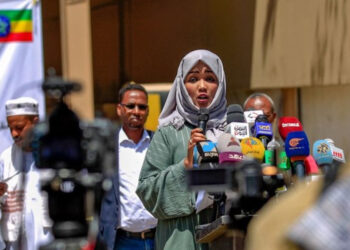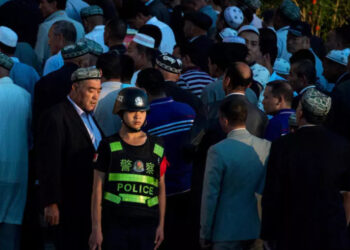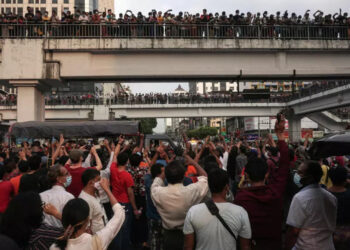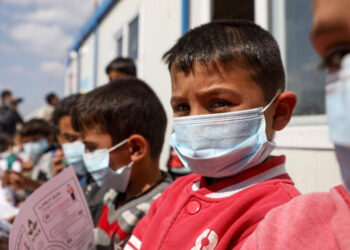Saudi women held in detention for nearly a year have been charged following contact with foreign media and activists, Human Rights Watch said Thursday, after they went on trial for undermining national security.
“After nearly a year of accusations… that these brave champions of women’s rights are ‘foreign agents,’ the actual charges against them appear to be simply a list of their efforts to promote women’s rights,” said Michael Page, HRW’s Middle East deputy director.
“This is hardly the act of a government that is carrying out reforms, as (Crown Prince) Mohammed bin Salman and his supporters keep claiming.”
Torture, Harassment
The trial of at least 10 women opened in Riyadh’s criminal court last week after they were detained in 2018 as part of a sweeping crackdown on activists, legal authorities said, without specifying the charges.
HRW and Amnesty International put the number of women facing trial at 11. Some of them have allegedly faced torture and sexual harassment during interrogation in detention.
Citing sources who reviewed the charge sheets, HRW said the women were indicted after establishing contact with fully accredited international journalists based in the kingdom as well as foreign diplomats and international human rights organizations.
11 Saudi women activists were prosecuted last week for promoting women’s rights and simply contacting international organisations, including Amnesty International.
Join over 30,000 and demand that their detention must end now. https://t.co/gFKmChbo0B pic.twitter.com/HwXJ70hKS6— Amnesty UK (@AmnestyUK) March 18, 2019
“If sharing information about women’s rights with journalists and diplomats is illegal, then by that standard most of the Saudi leadership would be in prison right now,” Page said.
The charge sheets make no mention of contact with foreign spies, according to HRW.
‘Traitors’
Earlier this month, the Saudi public prosecutor said the activists had been accused of “coordinated activity to undermine the security, stability and social harmony of the kingdom”.
State-backed media have branded them traitors and “agents of embassies.”
Saudi Arabia’s media ministry and Riyadh’s criminal court did not immediately respond to a request for comment.
Some of the women appealed for bail in their first court appearance, family members told AFP.
Saudi women were finally allowed to drive in June 2018. So why are 10 women's rights activists going on trial in Saudi Arabia this week?
This is the story of one Saudi prisoner, Loujain al-Hathloul, and her fight for women's rights. pic.twitter.com/phYWLvAT48
— AJ+ (@ajplus) March 13, 2019
The women were initially expected to appear in a court set up to handle terrorism-related cases.
But just hours before their appearance, some relatives said they were informed the trial had been shifted to the criminal court, without being told why.
The sudden change was highly uncommon and indicated “political influence over the court proceedings,” HRW said.
Global Pressure
The move has also triggered speculation the trial could pave the way for the release of the women after the crackdown sparked international criticism against Prince Mohammed, the kingdom’s de facto ruler.
Some detainees, including prominent activist Loujain Hathloul, were recently made to sign letters in prison requesting a royal pardon from King Salman, family members told AFP.
The next court hearing is on March 27, relatives and a Western official told AFP.
Ahead of the hearing, some relatives said they were struggling to obtain official permission to meet the detainees at the Al-Ha’ir high-security prison outside Riyadh to prepare their defense against the charges.
Saudi Arabia has also faced global outrage over the murder of journalist Jamal Khashoggi inside the Saudi consulate in Istanbul last October.
More on the Subject
Saudi activists, including women, detained in a government crackdown this year have faced sexual harassment and torture during interrogation, Amnesty International said.
Detained Saudi Activists Face Torture, Sexual Harassment [Report]


